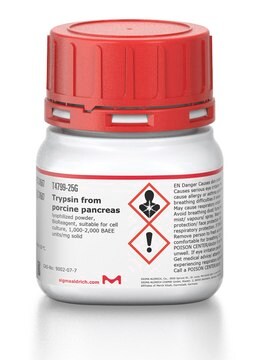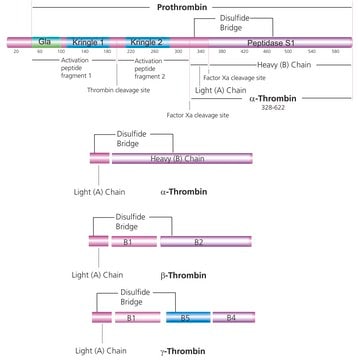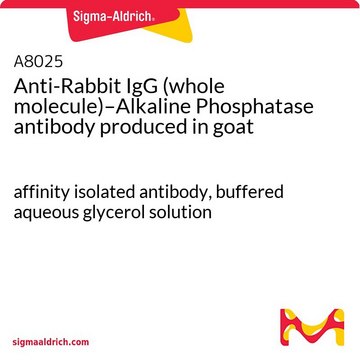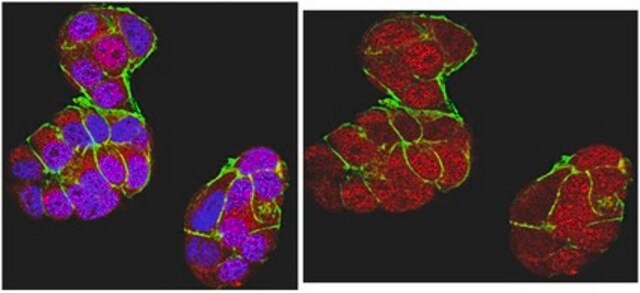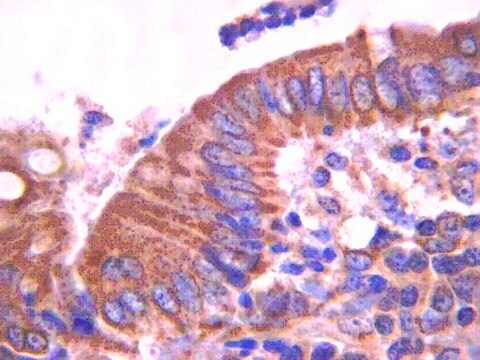MABT857M
Anti-Muscle Satellite Cells Antibody, clone SM C-2.6
clone SM/C-2.6, from rat
Sign Into View Organizational & Contract Pricing
All Photos(1)
About This Item
UNSPSC Code:
12352203
eCl@ss:
32160702
NACRES:
NA.41
Recommended Products
biological source
rat
Quality Level
antibody form
purified immunoglobulin
antibody product type
primary antibodies
clone
SM/C-2.6, monoclonal
species reactivity
mouse
packaging
antibody small pack of 25 μg
technique(s)
flow cytometry: suitable
immunofluorescence: suitable
immunohistochemistry: suitable
isotype
IgG1κ
target post-translational modification
unmodified
Related Categories
General description
Skeletal muscle satellite cells are quiescent mononucleated myogenic cells that reside between the sarcolemma and basement membrane of terminally-differentiated muscle fibers. They serve as a reserve population of cells with stem-like properties. The number of satellite cells are shown to be highest in postnatal muscle, but declines with age. In their quiescent stage, satellite cells are rounded and mononucleated, and do not express relevant amounts of myogenic proteins. Also, in their quiescent state they are shown to be c-kit-, Sca-1-, CD34+, and CD45-. Satellite cells can proliferate in response to injury and regenerate muscle and produce more satellite cells. Hence, they have been considered to be the only myogenic source for the maintenance of skeletal muscle. When muscle regeneration is initiated, satellite cells changes from their quiescent state to an active stage and begin to proliferative. They can proliferate and then either fuse with each other to form myotubes, which mature into myofibers, or they can fuse with damaged segments of muscle fibers. (Ref.: Fukuda, S et al. (2004). Exp. Cell Res. 296(2); 245-255; Morgan JE and Partridge, TA (2003). Int. J. Biochem. Cell Biol. 35(8); 1151 1156).
Specificity
Clone SM C-2.6 detects quiescent satellite cells from adult mouse muscle.
Immunogen
C2/4 myogenic cells.
Application
Anti-Muscle Satellite Cells, clone SM C/2.6, Cat. No. MABT857, is a rat monoclonal antibody that detects muscle satellite cells and has been tested for use in Flow Cytometry, Immunofluorescence, Immunohistochemistry, and Fluorescence Activated Cell Sorting (FACS).
Fluorescence Activated Cell Sorting (FACS) Analysis: A representative lot detected Muscle Satellite Cells in Fluorescence Activated Cell Sorting (FACS) applications (Urbani, L., et. al. (2012). PLoS One. 7(11):e49860).
Flow Cytometry Analysis: A representative lot detected Muscle Satellite Cells in Flow Cytometry applications (Ikemoto, M., et. al. (2007). Mol Ther. 15(12):2178-85; Fukada, S., et. al. (2004). Exp Cell Res. 296(2):245-55).
Immunohistochemistry Analysis: A representative lot detected Muscle Satellite Cells in Immunohistochemistry applications (Fukada, S., et. al. (2004). Exp Cell Res. 296(2):245-55; Yao, Y., et. al. (2016). Nat Commun. 7:11415).
Immunofluorescence Analysis: A representative lot detected Muscle Satellite Cells in Immunofluorescence applications (Fukada, S., et. al. (2004). Exp Cell Res. 296(2):245-55).
Flow Cytometry Analysis: A representative lot detected Muscle Satellite Cells in Flow Cytometry applications (Ikemoto, M., et. al. (2007). Mol Ther. 15(12):2178-85; Fukada, S., et. al. (2004). Exp Cell Res. 296(2):245-55).
Immunohistochemistry Analysis: A representative lot detected Muscle Satellite Cells in Immunohistochemistry applications (Fukada, S., et. al. (2004). Exp Cell Res. 296(2):245-55; Yao, Y., et. al. (2016). Nat Commun. 7:11415).
Immunofluorescence Analysis: A representative lot detected Muscle Satellite Cells in Immunofluorescence applications (Fukada, S., et. al. (2004). Exp Cell Res. 296(2):245-55).
Research Category
Cell Structure
Cell Structure
Quality
Evaluated by Flow Cytometry in C2C12 cells.
Flow Cytometry Analysis: 1 µg of this antibody detected Muscle Satellite Cells in a population of one million C2C12 cells.
Flow Cytometry Analysis: 1 µg of this antibody detected Muscle Satellite Cells in a population of one million C2C12 cells.
Physical form
Format: Purified
Protein G purified
Purified rat monoclonal antibody IgG1 in buffer containing 0.1 M Tris-Glycine (pH 7.4), 150 mM NaCl with 0.05% sodium azide.
Storage and Stability
Stable for 1 year at 2-8°C from date of receipt.
Other Notes
Concentration: Please refer to lot specific datasheet.
Disclaimer
Unless otherwise stated in our catalog or other company documentation accompanying the product(s), our products are intended for research use only and are not to be used for any other purpose, which includes but is not limited to, unauthorized commercial uses, in vitro diagnostic uses, ex vivo or in vivo therapeutic uses or any type of consumption or application to humans or animals.
Not finding the right product?
Try our Product Selector Tool.
Storage Class Code
12 - Non Combustible Liquids
WGK
WGK 1
Certificates of Analysis (COA)
Search for Certificates of Analysis (COA) by entering the products Lot/Batch Number. Lot and Batch Numbers can be found on a product’s label following the words ‘Lot’ or ‘Batch’.
Already Own This Product?
Find documentation for the products that you have recently purchased in the Document Library.
Our team of scientists has experience in all areas of research including Life Science, Material Science, Chemical Synthesis, Chromatography, Analytical and many others.
Contact Technical Service